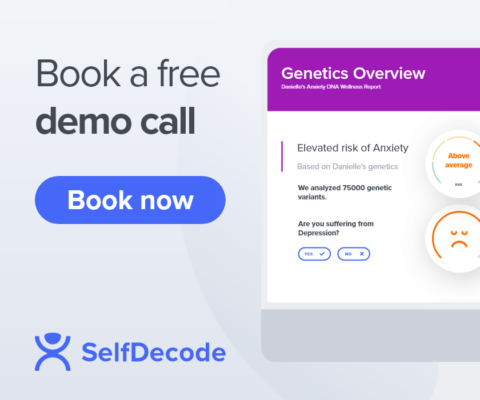
Naturopathic, homeopathic, integrated, holistic, and functional medicine are all alternative medicine terms you have heard before. If you work in the healthcare industry, you likely know someone associated with one of these practices. When someone calls themselves a naturopathic doctor, however, what exactly does that mean relative to all of the others? Read on to learn what naturopathic doctors do, and how to become a naturopathic doctor.
What Is Naturopathic Medicine?
Naturopathic medicine blends modern science with traditional and natural forms of medicine. It emphasizes nutrition, lifestyle counseling, and plant-based medicine to promote wellness and treat illness.
Naturopathic doctors (NDs) work from the basic premise of using the healing power of the body to address the underlying causes of disease, rather than focusing on symptoms. This requires understanding the context of a person’s whole life.
The naturopathic philosophy emphasizes patient education and self-care. It can be used in conjunction with conventional medicine to support the body’s healing processes, which is more in line with integrated and functional medicine practices.
Naturopathic medicine is a primary care form of medicine that will diagnose, treat and manage acute and chronic conditions. It does this by going beyond basic symptom relief, addressing disease and dysfunction at the level of body, mind, and spirit.
The practice of naturopathy is ancient, dating back thousands of years. Still, it is only in the past several centuries that the growth of science and technology has added to this ancient tradition. Even as science began to figure out the human body, naturopathic medicine was still combined with it to help treat ailments.
The first school of naturopathy in the U.S. was established back in 1902, but the post-WWII explosion of technology and science pushed naturopathy into the background as being an “old way” of doing things. It wasn’t until the 1970’s that it began making its way back into mainstream medicine.
What Is A Naturopathic Doctor?
Before discussing how to become a naturopathic doctor, let’s understand what a naturopathic doctor is. A Naturopathic Doctor (ND) as compared to a Naturopath, is an actual licensed doctor from an accredited doctoral program, trained with a minimum core knowledge base and residency training with another doctor.
A naturopath, by comparison, is basically a health coach focused on using naturopathic methods to improve wellness. The ND can diagnose and prescribe, whereas a naturopath cannot. They are essentially primary care physicians adhering to a specific set of principles and methods for treating and preventing illness and injury.
Like traditional doctors who can specialize in various forms of treatment or treating specific illnesses, NDs can and will focus their practices as well. They may adhere to a strict practice of “nature cure” focusing only on diet, lifestyle modifications, detoxification, and other natural interventions.
Some naturopathic doctors may offer additional modalities such as acupuncture or homeopathy, while others may practice other forms of physical manipulation and the use of neutra/pharma-ceuticals. In general, most NDs incorporate pieces of all these elements in their practice and care for their patients.
While NDs primarily use natural healing approaches, they are also trained to perform minor surgeries, such as removing cysts or suturing superficial wounds and to utilize prescription drugs under certain circumstances.
Regardless of the scope of their practice, the ND practices from a set of 6 principles, which include:
- Do No Harm: Utilize the most natural, least invasive, and least toxic therapies.
- Identify and Treat the Causes: Look beyond symptoms to the underlying cause.
- The Healing Power of Nature: Trust in the body’s inherent ability to heal itself.
- Doctor as Teacher: Educate patients in the steps to achieve and maintain health.
- Treat the Whole Person: View the body as an integrated whole in all its physical, psychological, and spiritual dimensions.
- Prevention: Focus on overall health, wellness, and disease prevention.
Naturopathic doctors provide individual and family primary healthcare and treat a wide range of chronic and acute ailments, including:
- Chronic pain
- Digestive issues
- Hormonal imbalances
- Heart disease
- Cancer
- Diabetes
- Mental health concerns (e.g., depression, anxiety)
- Neurodegenerative conditions
- Autoimmune conditions (e.g., thyroid disease, lupus)
- Musculoskeletal conditions and injuries
Fully trained and licensed NDs are as capable and trained as any more traditionally trained primary care physician. They have a different focus, however, and will look to treat a person from a different vantage point.
While traditional medicine may start with symptom relief by stopping or suppressing how that symptom is presenting itself, the ND will begin from where a person should be with optimal health and work toward alleviating the symptom, attempting to do so in the most natural and least intrusive manner possible. This doesn’t preclude the ND from prescribing medication to address an illness though, as some conditions require direct and immediate suppression of symptoms.
How To Become A Naturopathic Doctor
Today, there are only a handful of accredited schools to train naturopathic doctors (NDs), and only 23 states currently allow for licensure. This is a limiting factor for those wanting to pursue this kind of medicine, as well as for people wishing to seek them out for healthcare.
You can find naturopathic doctors in states that don’t license, and those offering healthcare services who say they are naturopaths can be found anywhere. It is important for people looking for naturopathic healthcare to understand the differences and what may be available to them.
For schooling purposes, if the program is offered entirely online, then it is not a licensable program, at least not in the U.S. The following are the schools currently accredited by the Council on Naturopathic Medicine Education (CNME), the only group recognized by the Department of Education to do so:
- Bastyr University (Seattle, San Diego)
- Canadian College of Naturopathic Medicine (Boucher, Toronto)
- National University of Health Sciences (Chicago)
- National University of Natural Medicine (Portland)
- Southwest College of Naturopathic Medicine & Health Sciences (Phoenix)
How long does it take to become a naturopathic doctor?
The programs mentioned above are four-year doctoral programs with a minimum of 1 year and up to 2 years of full-time residency. These are rigorous programs and command a commitment of time and money for completion. There are no shortcuts to becoming a naturopathic doctor.
Pursuing a medical career as a doctor is a significant investment. If that is too much, there are a wide array of programs at the health coach level, but that is a subject for another article.
Naturopathic Software & Tools
After reviewing how to become a naturopathic doctor, let’s discuss naturopathic software and tools available. NDs can generally make use of any app or software usable by other healthcare professionals.
The Institute of Functional Medicine (IFM) offers a toolkit that contains several hundred items to help doctors be successful with their patients. It includes items like:
- Patient assessments and questionnaires
- Intake forms
- Screening tools
- Lifestyle prescriptions
- Food plan guides
- Patient education materials on nutrition and other modifiable lifestyle factors
- Clinical decision trees
Similar tools are available from many different resources, as they are not necessarily specific to naturopathic medicine, but their design suits the naturopathic elements of functional medicine and is thus well-suited for the ND. The toolkit does not require taking courses in the program, but merely requires membership in the group, which likely makes the fee worth it on its own.
One tool worth adding to the screening process is SelfDecode Pro, which analyzes the patient’s genetics and lab work to produce actionable recommendations based on the person’s health information.
With SelfDecode Pro, naturopathic doctors are able to easily analyze their clients’ DNA and labs and create custom health regimens personalized to each client. SelfDecode also offers various lifestyle assessments and intake forms for a complete picture of the client’s health. The information is stored securely under each client’s profile for easy access.
SelfDecode Pro analyzes up to 83 million genetic variants and over 1,500 lab markers and offers over genetic reports for over 150 health topics such as gut health, inflammation, stress, and others. All in all, this software can help practitioners decrease treatment planning time and focus on patient care and other revenue-generating activities.
Final Thoughts
Like every other healthcare field, naturopathic medicine is not an inexpensive endeavor to get into. That said, there are a lot of opportunities out there right now as the field is developing and changing rapidly. Efforts are being made in numerous states currently to make licensing available. It will continue to alter the medical landscape, along with functional and integrated medicine to produce positive changes in our healthcare system. Chances are good, if you are interested in a career in healthcare, that it is an exciting area to get into.
Understanding how to become a naturopathic doctor is just the first step. For a thriving practice, it’s important to choose the right tools that will benefit both the practitioner and the client. Book a demo call today to discover if SelfDecode Pro is the right naturopathic software for your practice.



